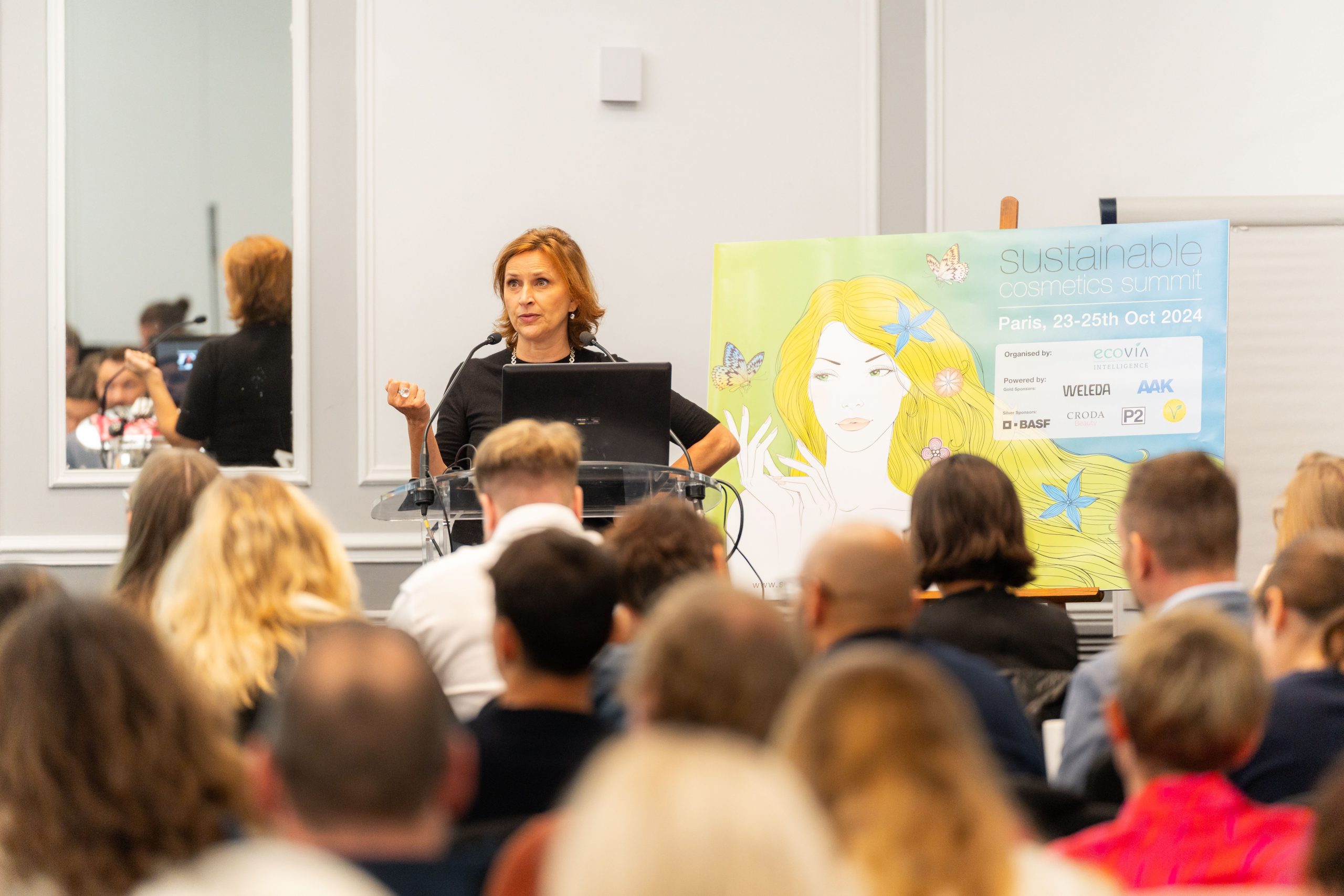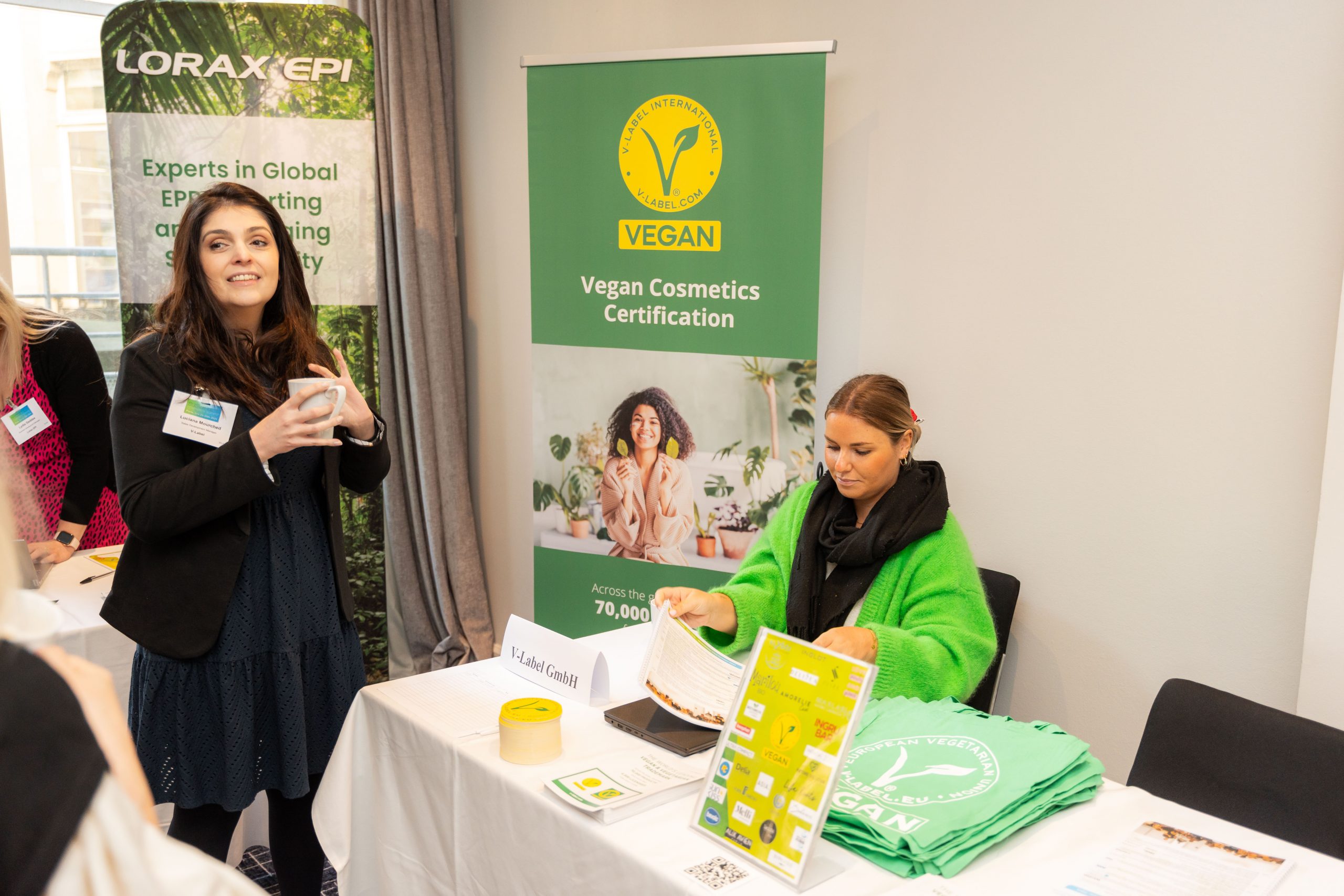The European edition of the Sustainable Cosmetics Summit will explore the sustainability implications of Artificial Intelligence (AI) and emerging technologies in the beauty industry. Taking place in Paris on 22–23 October, the summit will examine their disruptive influence on R&D, formulation, packaging, and marketing to advance sustainability. Some of the key highlights of the agenda include…
> Growing Power of AI. Artificial Intelligence is transforming the cosmetics industry in multiple ways. Leading companies are using Generative AI to reformulate and develop new products. For instance, L’Oréal is working with IBM’s Gen AI technology to analyse formulation data, enabling greater use of sustainable raw materials while reducing both energy consumption and material waste. Alessandro Curioni, IBM Fellow, will share insights into this pioneering collaboration.
Perfect Corp will showcase how AI and augmented reality are creating personalised beauty experiences. Its portfolio includes interactive solutions such as AI-powered skin analysis, hairstyle generation, face reshaping, and Software as a Service solutions for businesses and consumers.
AI is also influencing sustainable packaging. Jenny Stanley, Managing Director of Appetite Creative, will outline how AI is driving smarter packaging design, material selection, and lifecycle optimisation. Another speaker will highlight AI’s growing role in developing sustainable marketing strategies.

> Biotechnology. New technologies, such as precision fermentation, plant cell technology, and synthetic biology are opening new pathways to sustainable ingredients for the cosmetics industry. The Swedish start-up Melt & Marble will present how it uses precision fermentation to create designer fats, while Smey is applying similar methods to produce oils. The use of plant call technology to create novel actives will also be discussed.
> Neurocosmetics Potential. Interest is growing in neurocosmetics—skincare products designed to interact with the nervous system. Cedric Rimella, CEO & Founder of I.D. Swiss Botanicals, will explain how his company has developed a range of neurocosmetics using plant extracts, designed to work with the skin’s “natural intelligence.” Giada Maramaldi from Givaudan will present Neuroglow, an active ingredient that influences key biological markers such as beta-endorphins, vitamin D, and oxytocin.
> Measuring Environmental Impacts. The EcoBeautyScore Association will introduce its new environmental rating system for cosmetics and personal care products. Developed in collaboration with more than 70 brands and associations, ratings are given to products according to their environmental impacts. The ratings are based on life cycle assessment (LCA) and the EU’s Product Environmental Footprint (PEF) methodology.
Mathilde Allegrie from Lubrizol will demonstrate how the company uses LCA to measure and reduce the carbon footprint of its cosmetic ingredients.
> Green Materials. A dedicated session will spotlight new and emerging cosmetic ingredients for sustainability. Qore LLC will show it has created a bio-based 1,4-butanediol using renewable feedstock. The QIRA material has significantly lower carbon footprint than acetylene, thereby reducing greenhouse gas emissions. Ludovic Van from Oleon will emphasise the importance of eco-design when making green cosmetic ingredients. Other topics include upcycled materials, traceability tools, and novel active ingredients.
> Sustainable Packaging. A half-day session will explore strategies to reduce the environmental impact of cosmetic packaging. Maja Desgrées du Loû, from the European Commission, will give details of the EU’s newly enacted Packaging and Packaging Waste Regulation, designed to cut waste and promote circular systems. The expanded Extended Producer Responsibility (EPR) rules will hold brands more accountable for packaging waste.

Eastman Chemical will discuss how EU regulations can encourage circular packaging design and chemical recycling technologies. Colin Strobant from Sulapac will show how its bio-based, biodegradable materials—made with natural fillers such as wood and clay—are providing alternatives to plastic packaging. Terracycle will share updates on its innovative approaches to recycling and repurposing packaging for greater circularity.
The session will close with a panel on consumer behaviour. Discussion will centre on questions such as: How can consumers change their perception of packaging? What will encourage them to adopt alternative retail models? And how can they be motivated to make more sustainable choices and dispose of packaging responsibly?
Registration for the event closes on 21st October. More details are on the website

